Should You Cover an AC or Heat Pump During the Fall and Winter?
During the fall and winter months in Belleville, you may have little use for your air conditioner. Depending on weather conditions, you only need to use your heat pump sporadically during this time of year. Let’s take a look at whether these items should be covered when they are not in use.
Covering a Heat Pump Might Trap Moisture
It isn’t uncommon for heat pumps to be covered in frost, snow or ice throughout the year. In fact, heat pumps are designed to defrost themselves every so often to prevent too much ice or snow from building up on or inside of it. If you cover your heat pump, you may actually trap moisture either inside of the device or in the ground surrounding it.
In either scenario, you run a higher risk of causing damage that may be difficult or expensive to repair. Feel free to call the professionals at BELOMAN in Belleville, IL, to inspect your home’s heat pump if you suspect that it may be broken or defective. Our trained technicians have the skills and experience to inspect, repair and replace a heat pump or other home heating components in a timely and affordable manner.
You Don’t Need to Fully Cover an Air Conditioner
As a general rule, there is no need to wrap an air conditioner in a protective covering when it is not in use. This is because they are made from materials that are designed to withstand harsh temperatures or being covered in layers of snow or ice for weeks or months at a time.
If you are concerned about sticks, acorns or other debris getting inside of a condenser unit, there is no harm in placing a piece of cardboard on top of it. Alternatively, it may be a good idea to clear the area around this component of trees or tree branches before turning it off for the year.
Covering an AC Unit Could Make It Inviting for Animals
A squirrel, mouse or other small animals might see a covered condenser unit as the perfect place to seek shelter from the cold. In some cases, they could make their way from this unit to the inside of your home. If a rodent or animal enters your home, it may remain active throughout the winter even though it would typically be dormant in the wild.
This is because it will have access to food, water and temperatures that feel more like summer than winter. In addition, there is a chance that a single rodent or small family of rodents could quickly reproduce and wreak havoc on your property. Therefore, make sure that any cover that you use is free of holes or other gaps that could be exploited.
Make Sure to Take the Cover Off
If you do decide to put a cover on your air conditioner, be sure to take it off before turning it on for the first time next spring to avoid causing significant damage. The same is true if you decide to put a cover on your heat pump while it is not in use. As a general rule, professionals say that the possibility of forgetting to remove a cover may be the best reason to simply not use it in the first place.
Don’t Void Your Warranty
In most cases, you will receive a warranty or guarantee from the company that manufactured your air conditioner or heat pump. You might also receive a warranty or guarantee from the company that installed these components. However, the warranty could be voided if you fail to properly maintain these items or take other steps that might be seen as reckless or careless.
Failing to remove a cover from your air conditioner or placing a cover on a heat pump while it is still in use may be viewed as reckless behavior on your part. Therefore, you might be liable for paying for needed repairs regardless of how new your heating or cooling system may be. It is worth noting that even if a heating or cooling component can be fixed, any damage done to it could reduce its useful life.
If you need help with repair, installation or maintenance of your home’s heating or cooling components, give BELOMAN a call today! We may also be able to help you improve your home’s indoor air quality or get rid of insects or other pests currently taking up residence on your property.







